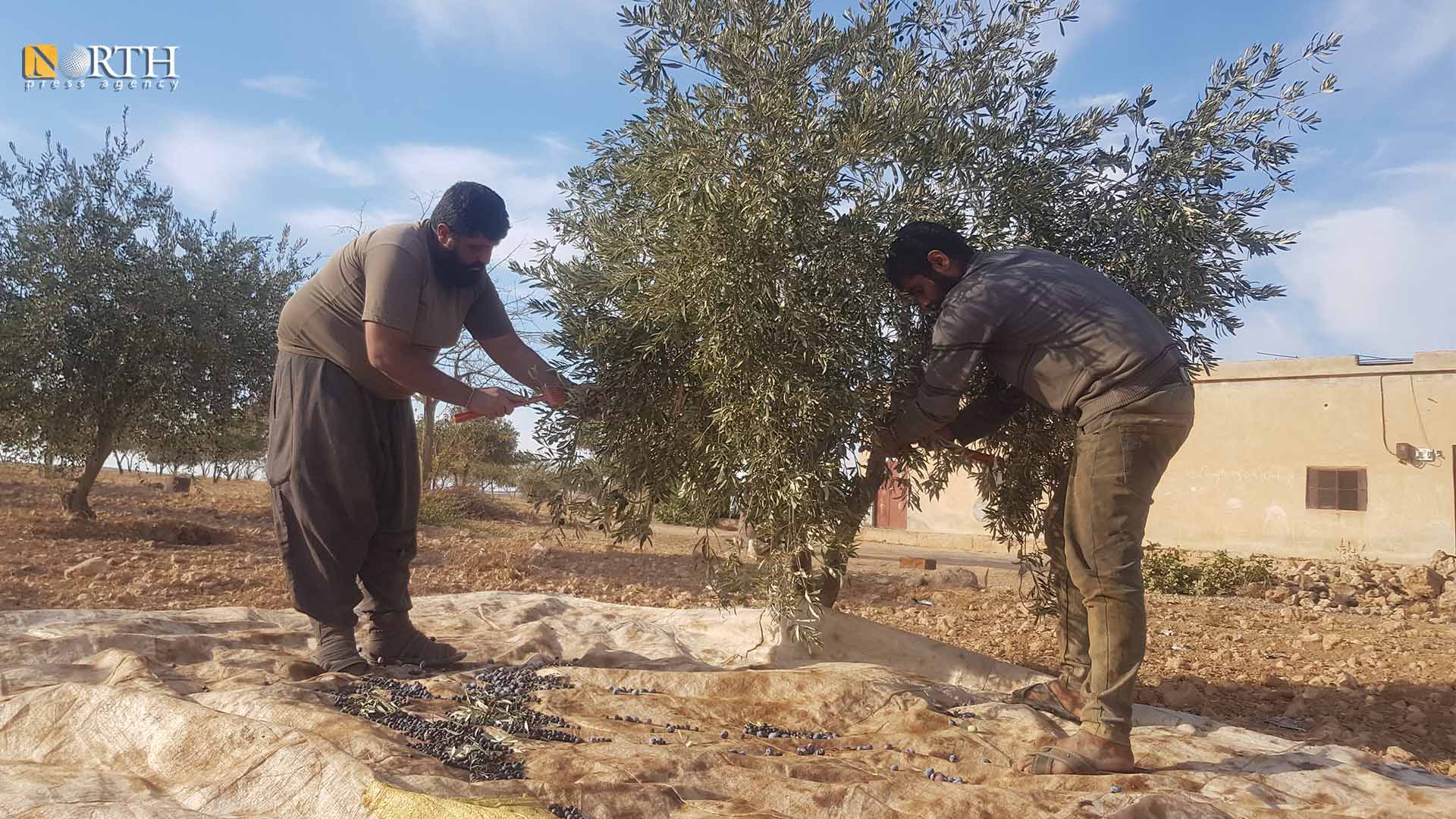KOBANI, Syria (North Press) – Production of olive, this year, seems to be decreased to less than 30% in comparison to the last year which will affect wages of farmers and workers in picking olive and olive oil mills in the countryside of Kobani, north Syria.
The reasons after the low production this season are the drought that affected the area as a result of the low rainfall, the decreasing levels of water, increasing price of compost, and the difficulty in securing diesel for generators to irrigate trees.
Wayso Ramouk, a farmer of the southeastern countryside of Kobani, who has five acres with about 1,000 olive trees, said, this year production has decreased by about 65%.
“This is because trees need to be watered. This year we witnessed drought and there has been no rainfall so far,” Ramouk added.
“These trees need to be served in terms of fertilization, pruning, pesticides and plowing,” he noted.
As a result of the difficulty in obtaining diesel for irrigation and plowing processes and the increasing price of compost, farmers of the countryside of Kobani have neglected the trees, according to farmers.
Poor production
As a result of the low production of olive that the region is witnessing this year, price of each olive oil tin (each weighs 16 kilos) has come up to $45 after it had been $30, according to owners of olive oil mills.
During the season of picking olives, farmers rush to contract with workers in order to pick the olive, but this year it is the opposite, the workers are the ones who search for a land to work in.
The low production of olive, this year, has affected the workers and their wages, according to Shervan Ali, who has been working in picking olive for years.
“Last season, the wage of picking each kilo of olive was 100 Syrian pounds (SYP), but this year, we work in turn for 35% of the production,” Ali said.
“We are four workers, we have picked only 5 kilos of olive since morning,” he added.
The process of picking olive lasts about a month, but this year it will be lesser, “because out of 15 olive trees, only one tree is fruitful,” he noted.
Businesses affected
The low production of olive has decreased the number of workers in mills, Hanifi Shahin, an owner of an olive oil mill in the countryside of Kobani, said.
“Last year, there were 25 workers in the mill and this year, there are only ten,” due to the poor production, Shahin added.
“The low production has affected the mills, hired cars, and workers,” he noted.
“We expect that the production, this season, will be only 20% in comparison with the year’s production.”
The price of olive oil will be affected and increased because farmers will store the production of their lands that can hardly meet their needs rather than selling it, according to the owner of the mill.

